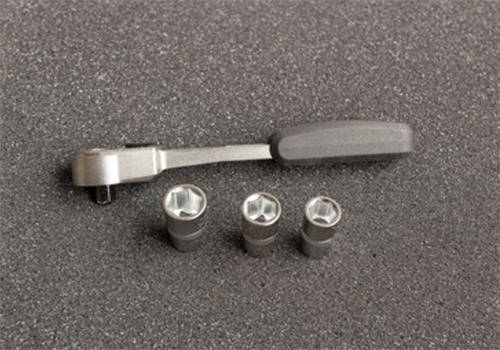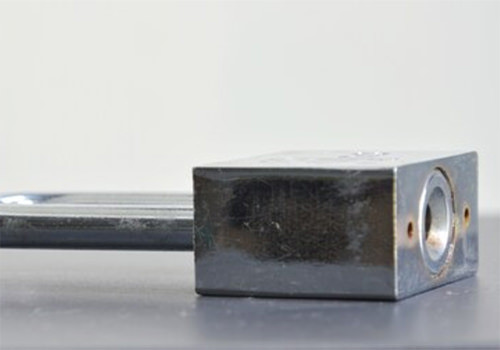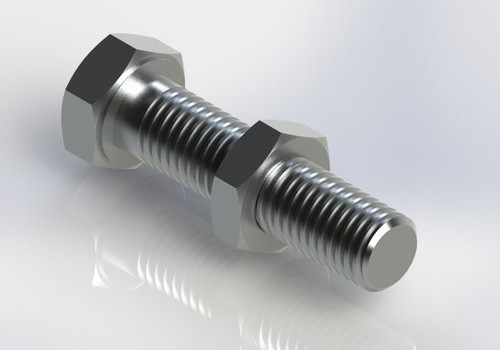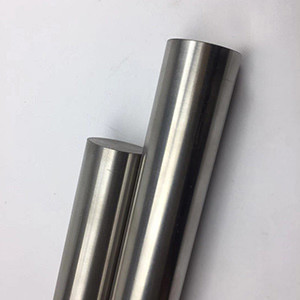Molybdenum
Molybdenum Alloys
Molybdenum is a silvery-white metal that is ductile and highly resistant to corrosion. It has one of the highest melting points of all pure elements — only the elements tantalum and tungsten have higher melting points. Molybdenum Alloys is also a micronutrient essential for life.
Molybdenum Alloys in Brief
High Temperature & Corrosion Resistant Alloys.
Molybdenum (Mo) is a refractory metallic element that readily forms hard, stable carbides and has the sixth-highest melting point of any element. Molybdenum is most commonly used as a high temperature, corrosion resistant metal alloy in steel, cast iron and super alloys for the marine industry, semiconductor industry and specialty machine shops.
Molybdenum enhances hardenability, strength, toughness, and resistance to wear and corrosion. This versatility makes Molybdenum a fixture in contemporary industrial technology, which increasingly requires materials that can withstand high stress, expanded temperature ranges and highly corrosive environments, all without significantly expanding or softening.
Molybdenum alloys are available in coil, sheet, bar, rod, plate flat stock and wire at XOT Metals. Take advantage of our competitive prices and reliability, along with our unique ability to recognize your specific needs and identify the most effective solution.
Data of Molybdenum Alloys
| Physical properties of molybdenum | |
|---|---|
| Symbol | Mo |
| Ordinal number | 42 |
| Atomic weight (in reference to 12C11) | 95.94 |
| Grid type | body-centered cubic |
| Density (at 20℃) | 10.2g/cm3 |
| Melting point | 2897k |
| Boiling point | 4978k |
| Specific heat( at 20℃) | 23.9J/K.mol |
| Linear thermal expansion coefficient,0-100℃ | 5.43x10-6K-1 |
| Modulus of elasticity | 329Gpa |
| Shear modulus | 125Gpa |
| Tensile strength | 500-800N/mm2 |
| Therm, conductivity (at 20℃) | 1.42W/cmK |
| Electric conductivity (at 20℃) | 0.1901/uΩcm |
| Spec. electric resistance | 0.052Ωmm2/m |
| Hardness | HV10* |
| *Depending on natural strain | |
| Chemical properties of molybdenum | ||
|---|---|---|
| REACTING SUBSTANCE | CONDITION | BEHAVIOR |
| Water | cold/warm | resistant |
| Hydroelectric acid HCI | cold | resistant |
| warm | minor effect | |
| Sulphuric acid H2SO4 | cold | resistant |
| warm | major effect | |
| Nitric acid HNO3 | cold/concentrated | major effect |
| warm | major effect | |
| Hydrofluoric acid, pure HF | cold/warm | resistant |
| Nitrohydrochloric acid (aqua regia) | cold/concentrated | major effect |
| warm | major effect | |
| Caustic soda, molten | in air | major effect |
| Air and oxygen | up to 350℃ | resistant |
| Hydrogen | at all temperatures | resistant |
| Nitrogen | over 1100℃ | resistant |
| Carbon dioxide CO2 | over 1100℃ | resistant |
| Sulphur dioxide SO2 | at red heat | |
Outstanding Chemically Feature of Molybdenum — Extraordinary Versatility
- Oxidation states from –II to VI
- Coordination numbers from 4 to 8
- Varied stereochemistry
- The ability to form compounds with inorganic and organic ligands, with particular preference for oxygen, sulfur, fluorine and chlorine donor atoms
- Formation of bi- and poly-nuclear compounds containing bridging oxide or chloride ligands and/or molybdenum-molybdenum bonds.
Highlight Features:
- Outstanding creep resistance.
- High purity and good electrical conductivity.
- Long service life and an extremely high melting point.
Applications
- Used as electrodes in the field of rare earth metal industry;
- For producing heating elements and refractory parts in high temperature furnaces;
- For producing electric light source parts and electric vacuum components;
- Suitable for producing ion implantation parts.
Molybdenum Bolts
Molybdenum Bolts and nuts & other Customized Molybdenum Machined Parts & CNC Parts (Drawings Required)

Molybdenum Machined Parts
Molybdenum Non-standard parts and other Customized Molybdenum Machined Parts & CNC Parts (Drawings Required)

Molybdenum Custom Parts
Molybdenum CNC parts and and other Customized Molybdenum Machined Parts & CNC Parts (Drawings Required)


